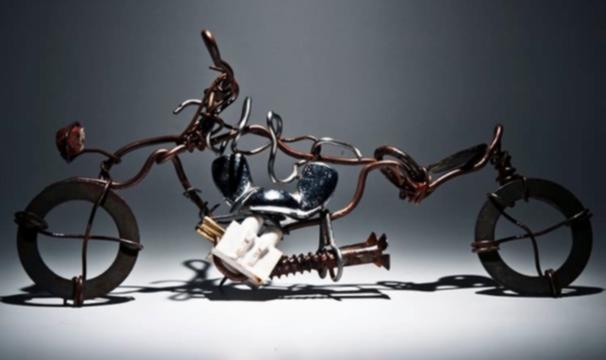Yesterday I was struck by a news carried out Euronews where an exemplary case of circular economy was exposed. It is a “Tool Bookstore” that has been operating in Brussels since 2015 called Tournevie.
Its objective is to rent high quality tools and thereby reduce the purchase of tools for citizens, avoiding the purchase of poor quality tools, and promoting reuse and repair.
Wow! There is no doubt that this news aroused my attention, since it was such an innovative and unique initiative that it had been picked up by the media.
However, we do not have much news related to the circular economy in the media, since it is usually just available in scientific publications.
It was immediately when I thought that news related to the circular economy did not appear too much in the mass media, especially those that are oriented to agriculture, livestock and the environment sustainable..
This information is usually available in scientific publications that few people have access to, both because of its cost and because it uses an excessively technical vocabulary. And, that’s why, I still have the feeling that scientists, technicians as well as politicians are still far from other citizens.
Beneficial effects for all
As in the case of the “Tool Library“, it would be very interesting to promote publications on circular economy to be adopted and adapted by many communities, create more awareness of sustainable development in the fields of economy and enable unprecedented economic growth. As we will immediately see several examples, local economies would be the best beneficiaries.
And this statement is so true that there are many governments, companies and investors that are placing the circular economy in their efforts to mitigate the negative effects, as is the case of global warming; and how the products will be improved.
Even, as The Baltic Times recently pointed out, alluding to the current war conflict, that the circular economy will reduce dependence on third countries (e.g., energy, raw materials, fertilizers).
Other examples of circular economy
IIf we search the Internet we can easily find some interesting examples of circular economy related or directly involved in the primary sector.
This may be the case of the company from Almere (Netherlands) MUD JEANS. They have changed the traditional model of “make, buy, use and throw away”. MUD offers their products for rent that users can return when worn out; for the company to repair or recycle. And this is an important issue, since the manufacture of jeans is highly polluting, consuming up to 7,000 litres of water and toxic chemicals.
Appeal, an American company (California, USA), has devised an innovative way to eliminate single-use plastic packaging, while also addressing food waste. Apeel has developed an edible coating layer, made from compounds in the shells, seeds, or pulp, which slows food spoilage.
The contribution to the Circular Economy of SafiOrganics, Kenya, is manufacturing biochar fertilizer developed from discarded rice hulls. The benefits provided by this practice is the improvement of local economies since it avoids volatility and dependence on international markets; increased agricultural yields, lower input costs, creation of local jobs, reduced soil acidity and improved soil structure, as well as increased carbon sequestration in the soil.
And like these we have numerous examples that can be adopted and adapted to their realities by other communities. It would only be necessary to disseminate these circular economic practices of the media and be encouraged by the political leaders of the various administrations.

Pingback: The Circular Economy is already here! - CONSOLE